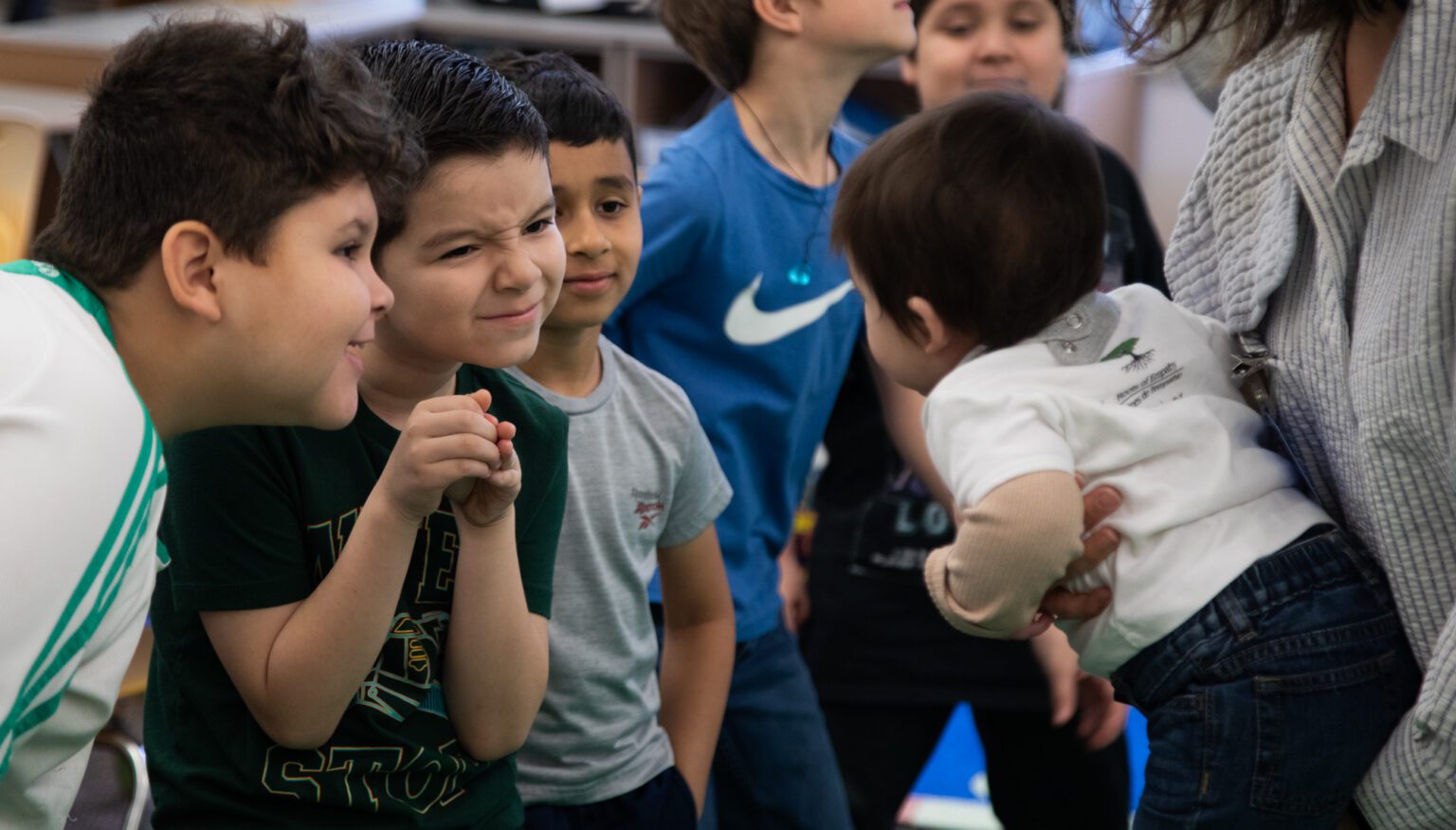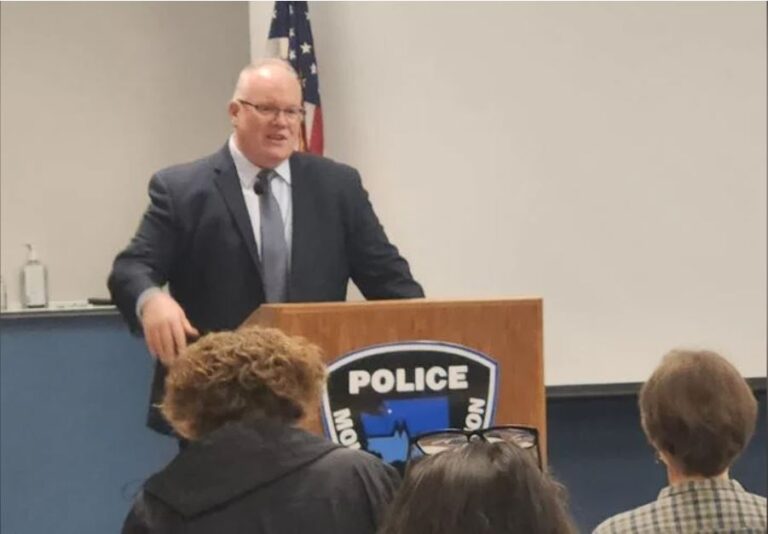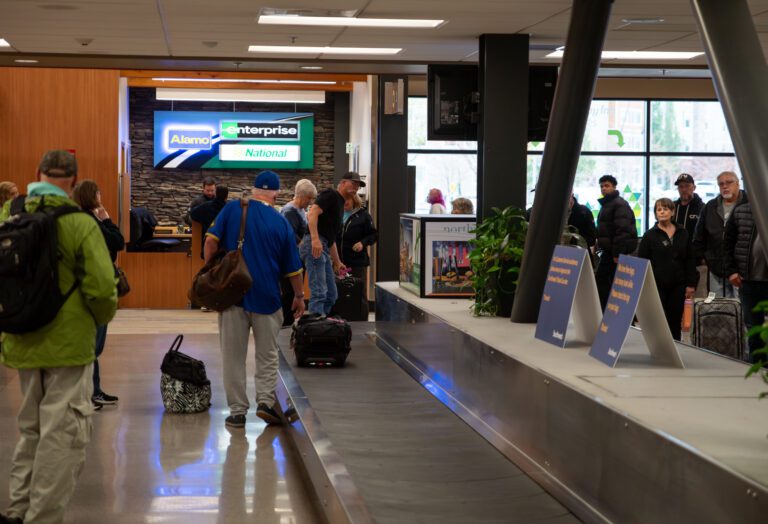Across 27 classrooms in Whatcom County, the tiniest of teachers — babies — are leading lessons for elementary and middle school students.
The lessons aren’t ones in science or language arts, but ones in empathy and how humans express emotions at the simplest, most easily identifiable level.
At Wade King Elementary on March 7, the lesson began with a circle of John Livezey’s fourth-grade students surrounding a big lime green blanket. They could barely contain their excitement as Victoria and Trevor Oram circled the group with baby Cecelia, allowing each student a moment to say hello and wiggle the child’s foot. As they went around, the children softly sang, “Hello baby Cecelia, how are you? How are you? How are you?”
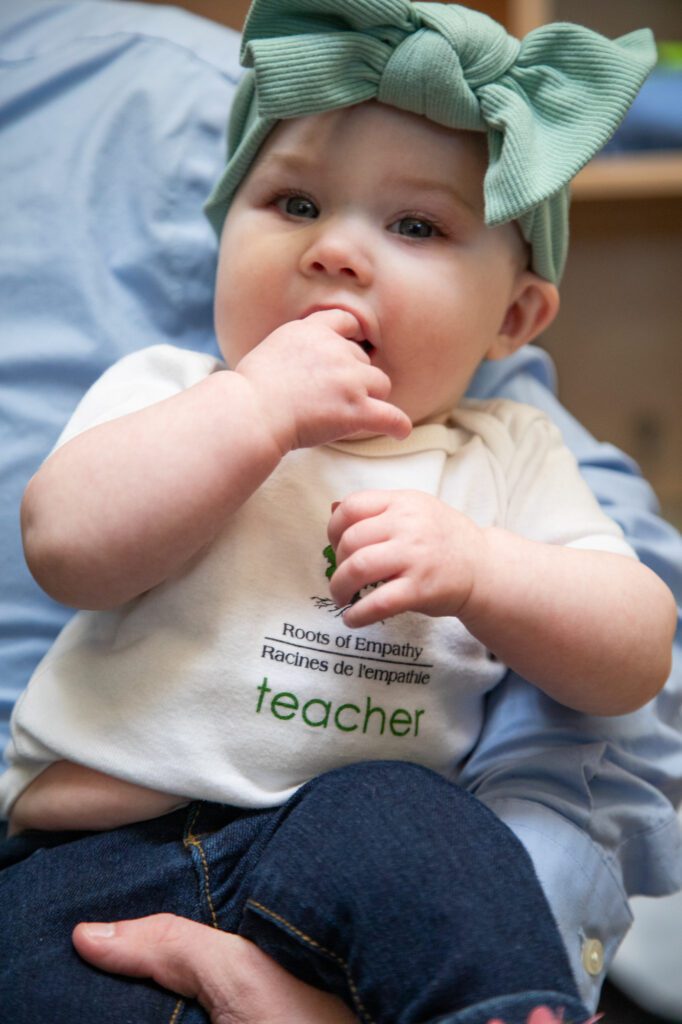
As the lesson progressed, the kids intently watched 7-month-old Cecelia as she bounced, squealed and played on the blanket. Through it, they asked questions, shared experiences and formed theories about what the baby was doing or feeling in that moment. They marveled over her smiles and encouraged her to stand with the help of her mother.
Cecelia is one of many infants who are part of the program Roots of Empathy, a Toronto-based nonprofit operating for its second year in the Bellingham, Blaine, Ferndale, and Mount Baker school districts. The program kicks off each September when parents bring their 2- to 4-month-olds into a classroom, and they return each month, allowing the students to see how their babies change and grow.
The students have grown attached to Cecelia, referring to her as “our baby,” said counselor Jaymie Wakefield-Georgen. Between visits, Cecelia’s family shares moments and videos, including her first word (“Mama”) caught on video. Wakefield-Georgen said the students squealed and applauded for her, proclaiming “look at our baby growing!”
The goal of the program is “to change the world, child by child” by bringing empathy-based lessons and curriculum into classrooms.
“Students are able to ask experiential questions, they’re able to look at what is the baby feeling and they look at their own feelings,” said Sara Airoldi, the Whatcom program manager.
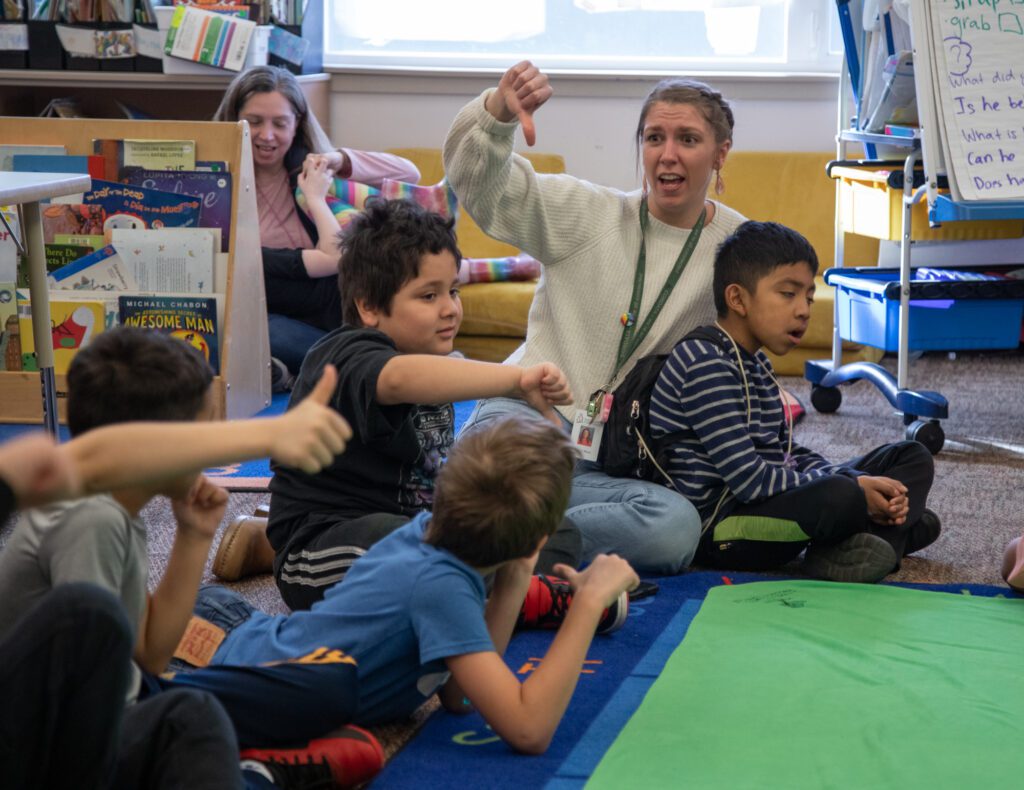
In teacher Quinn Reno’s second-grade class on March 1 at Cordata Elementary School, empathy program instructor Malia Boyd led a lesson.
“How do you think he feels trying to get that off?” she asked the students, as they watched their tiny teacher try to remove a toy stubbornly attached to his foot.
“Annoyed!” said one student. “Angry!” said another.
“Who here has felt frustrated before?” Boyd asked, encouraging the kids to relate the baby’s feelings to their own and share with one another. With a few simple questions, she encouraged empathy — a social response rooted in understanding others’ emotions.
Instructors, like Boyd, lead three lessons a month over the nine months of the school year. The first lesson updates students on the baby and where they’re at, the second is a visit by the baby and parents, and the third lesson reviews what students saw and learned from the baby’s visit.
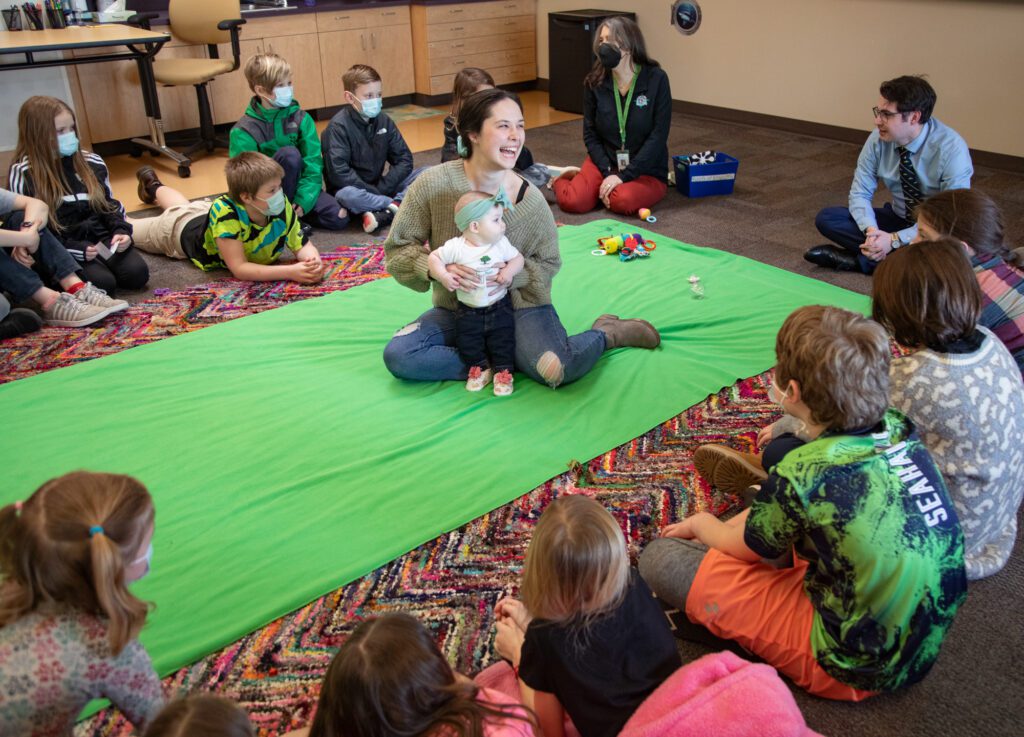
The lessons align with Social Emotional Learning (SEL) framework set by Washington state. Through SEL, teachers work to “build awareness and skills in managing emotions, setting goals, establishing relationships” so students know how to make good decisions that lead to success, according to the Washington Office of the Superintendent of Public Instruction.
In simpler terms, amid lessons on fractions and reading, teachers encourage students to identify their own and other’s emotions and to manage the situation appropriately.
“School itself, learning, is a social endeavor. We learn in groups and with other people, and it’s never been just about reading, writing and arithmetic,” said Eva Warner Chazo, assistant principal at Cordata Elementary. “Teachers have always talked to students about how they should answer things, or about procedures and routines, or about how they treat each other.”
Lessons associated with SEL have always been taught in schools to one degree or another, Warner Chazo said, whether they focused on being a good citizen or anti-bullying. The method of teaching SEL is just more “explicit,” she said.
Researchers from the Bern University of Applied Sciences tested 23 classrooms in Switzerland in levels of empathy and aggression over the course of two years. The study shows empathy grew and aggression decreased for classrooms using the Roots of Empathy program, compared to classrooms without the program where empathy levels remained stagnant and aggression increased.
“The beauty of it is kids are learning through experience,” Cordata Principal Craig Baldwin said. “Developing empathy for students, one of the best ways we can do it is to give them experiences, not just talk to them about it or tell them the word empathy.”
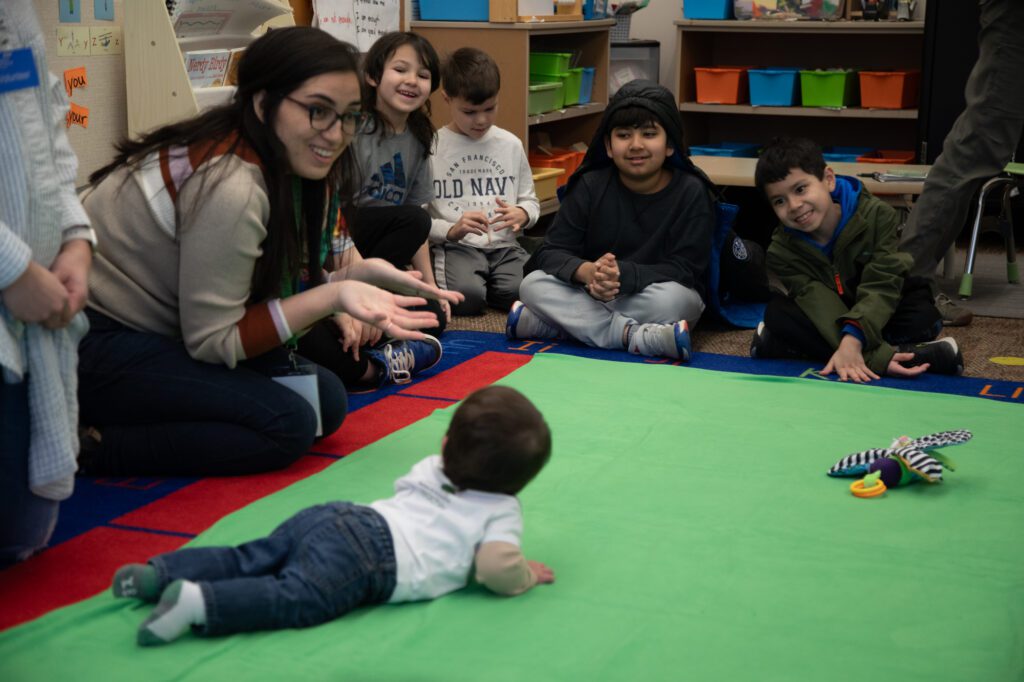
Boyd, who volunteered with one of her three children in the 2022-23 school year, said she loves helping teach life skills and being a part of the program has made her a better parent.
“My parenting has improved, just from learning how to let my children express their emotions,” she said.
At the end of each year, students say farewell to their small teachers, make scrapbooks and share memories.
The program is in year two of its three years of startup funding provided by an anonymous local family foundation, and the program is looking “to create partnerships for the long term, sustainable future,” Airoldi said in an email. Funds go toward instructor training and mentoring, curriculum development, professional development, classroom materials and other administrative costs. The program is free for schools.
Most involved are volunteers, and the biggest struggle, Airoldi said, is that the infants age out each year when they reach toddlerhood.
To get involved with the program, contact Sara Airoldi at sairoldi@rootsofempathy.org.
Hailey Hoffman is a CDN visual journalist; reach her at haileyhoffman@cascadiadaily.com; 360-922-3090 ext. 103.

